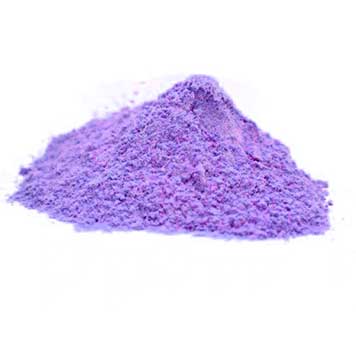
sodium benzoate health
The Health Implications of Sodium Benzoate
Sodium benzoate, a widely used preservative in the food and beverage industry, has garnered significant attention over the years regarding its safety and health implications. Found in a variety of products, from soft drinks to sauces, sodium benzoate has become an integral component of many food items, ensuring their longevity and stability. However, the concerns surrounding its consumption warrant a deeper exploration into its health implications.
What is Sodium Benzoate?
Sodium benzoate is the sodium salt of benzoic acid and is commonly used due to its antimicrobial properties. It prevents the growth of bacteria, yeast, and fungi, making it an effective preservative. The compound is generally recognized as safe (GRAS) when consumed in small amounts, according to the U.S. Food and Drug Administration (FDA). It is typically found in acidic foods with a pH of 4.5 or lower and commonly used in products such as carbonated drinks, fruit juices, and salad dressings.
Health Concerns and Controversies
Despite its approval by regulatory bodies, sodium benzoate has been the subject of various health concerns. Some studies have indicated that when sodium benzoate is exposed to certain conditions, it can form benzene, a known carcinogen. This reaction occurs particularly when sodium benzoate is combined with ascorbic acid (vitamin C) in a beverage and exposed to light. Benzene formation is a significant concern, as prolonged exposure to high levels of benzene can lead to serious health issues, including cancer.
Moreover, there are concerns regarding sodium benzoate's impact on hyperactivity in children. A study conducted by researchers at the University of Southampton in the UK found a potential link between sodium benzoate, artificial colorings, and increased hyperactive behavior among children. The study suggested that the consumption of foods containing these additives could lead to heightened levels of hyperactivity, prompting parents and health advocates to scrutinize the ingredients in processed foods more closely.
Regulating Consumption
sodium benzoate health

Recognizing these concerns, various countries have set limits on the allowable levels of sodium benzoate in food products. In the United States, the FDA allows sodium benzoate to be used as a preservative in concentrations of up to 0.1% in finished foods. In the European Union, this limit varies slightly but is typically similar, ensuring that the quantity of sodium benzoate remains within safety thresholds.
Public awareness has also led some manufacturers to reformulate their products to omit certain preservatives, including sodium benzoate. In response to consumer demand for cleaner labels and natural ingredients, brands have started to explore alternative methods for preservation, such as using natural preservatives derived from plants.
Recommendations for Consumers
For consumers concerned about sodium benzoate and its potential health impacts, the first step is to read food labels carefully. Many products that contain sodium benzoate also list its concentration. While the FDA deems it safe at lower levels, it is always prudent to consume processed foods in moderation.
For parents, being vigilant about the foods and beverages offered to children can help mitigate potential hyperactivity issues. Opting for whole foods, fresh fruits, and vegetables over processed snacks can reduce overall exposure to artificial additives and preservatives.
Conclusion
In conclusion, sodium benzoate remains a common preservative in food and beverage products, contributing to their shelf life and safety. While it is generally recognized as safe, ongoing research into its health implications draws attention to the need for caution. As consumers, staying informed about what we consume and advocating for transparency in food labeling can contribute to better health outcomes. Awareness is key in making choices that align with personal health priorities, especially in an age where processed foods dominate diets. As the conversation around food safety continues to evolve, so too should our understanding and approach to the ingredients we consume.
-
Understanding Synthetic Rubber OptionsNewsApr.27,2025
-
Trichloroisocyanuric Acid: Essential for Clean and Safe WaterNewsApr.27,2025
-
Sodium Dichloroisocyanurate: Key to Safe Water TreatmentNewsApr.27,2025
-
Sodium Acid Pyrophosphate: Essential in Modern Food ProcessingNewsApr.27,2025
-
Essential Water Treatment ChemicalsNewsApr.27,2025
-
Denatured Alcohol and Its Industrial UsesNewsApr.27,2025
-
The Versatile Uses of Sodium BicarbonateNewsApr.24,2025
Hebei Tenger Chemical Technology Co., Ltd. focuses on the chemical industry and is committed to the export service of chemical raw materials.
-

view more DiethanolisopropanolamineIn the ever-growing field of chemical solutions, diethanolisopropanolamine (DEIPA) stands out as a versatile and important compound. Due to its unique chemical structure and properties, DEIPA is of interest to various industries including construction, personal care, and agriculture. -

view more TriisopropanolamineTriisopropanolamine (TIPA) alkanol amine substance, is a kind of alcohol amine compound with amino and alcohol hydroxyl, and because of its molecules contains both amino and hydroxyl. -

view more Tetramethyl Thiuram DisulfideTetramethyl thiuram disulfide, also known as TMTD, is a white to light-yellow powder with a distinct sulfur-like odor. It is soluble in organic solvents such as benzene, acetone, and ethyl acetate, making it highly versatile for use in different formulations. TMTD is known for its excellent vulcanization acceleration properties, which makes it a key ingredient in the production of rubber products. Additionally, it acts as an effective fungicide and bactericide, making it valuable in agricultural applications. Its high purity and stability ensure consistent performance, making it a preferred choice for manufacturers across various industries.











